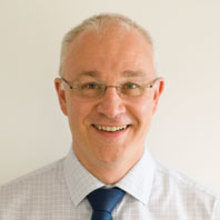From the Chief Executive
Issue: Zoonotic diseases
05 November 2015 article

At the Annual General Meeting in September, the members voted to change the name of the organisation. After 70 successful years, you agreed that a more straightforward name – Microbiology Society – would serve us better in the future and that the word ‘General’ had outlived its usefulness. But while the Society’s title might have been updated, our long-standing commitment to serving all microbiology communities has remained constant. Over the past few months, I have very much enjoyed seeing that commitment in action at a variety of events and conferences.
Back in June, it was a great pleasure to attend the Irish Division meeting in Galway on Microbial Interfaces. The range of topics was impressive, but perhaps even more so was the extent to which members were engaging with microbiologists outside of their own field. Clinical work being shared with environmental microbiologists, ecologists swapping experiences with geneticists and molecular biologists interacting with epidemiologists.
In July, it was inspiring to meet the teachers at the Small World Initiative Summer School in Reading, who will encourage the next generation of microbiologists, and in September, it was great when 12 of the Society’s Champions came together to share experiences of representing the Society on the ground in hospitals and universities. Linda Oyama even found the time to come while preparing for her PhD viva a few days later.
There have been two Focused Meetings recently – one on arboviruses in Glasgow and one on invasive fungi in Manchester. Since they were held on the same two days as each other, it was a challenge to attend both, but it was worth it to hear about such a wide range of the microbiological questions that you are studying. Twenty different countries and five different continents were represented among the speakers and poster-presenters, who came from hospitals, universities, public sector agencies and private sector companies. It was a pleasure to meet and listen to people from all career stages, from Mariana Almeida, a PhD student at Aberdeen who gave her first presentation at a major conference, speaking about fungal hyphae, to Carol Blair, a virologist from Colorado with decades of experience and wisdom to share.
And, of course, at the AGM itself, we heard from eight inspiring finalists in the Howard Dalton Young Microbiologist of the Year competition. They conveyed their passion for their work on viruses, bacteria and parasites with applications in animal and human health and in food microbiology. I hope that their careers will be helped not merely by being finalists in the competition, but also by learning from one another and from the contacts they have made at the Society.
Perhaps most of all, I have enjoyed visiting you in your own habitats. Over the past few months, I have been to Nottingham, Glasgow, Dublin and Aberdeen to speak to members at all career stages about what matters to you and how the Society can help. I have spoken to microbiologists working on prokaryotes, eukaryotes, viruses and parasites, some working on fundamental discovery research and some on questions with clinical, environmental, and industrial relevance.
The take-home messages are simple. You value opportunities to network, both professionally and scientifically. The Society must strive to ensure that the conference programme has something for everyone, and we must offer as many chances as we can for you to develop your careers. That means not just grants – although they are crucially important – but also events and resources that allow you all to tap into the strength and depth of the knowledge and experience of the wider membership.
As we plan for the coming months and years, we are making sure that these messages are taken on board. We also need to continue listening to the views of microbiology communities, and I am always keen to accept invitations to visit members, so please let me know if you and your colleagues would like me to visit your laboratory.
PETER COTGREAVE
Chief Executive
[email protected]
